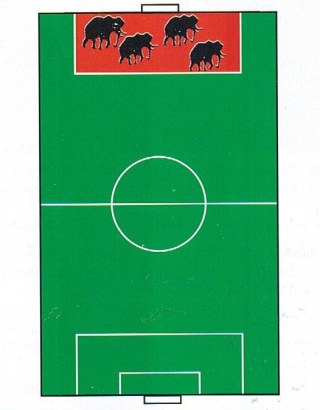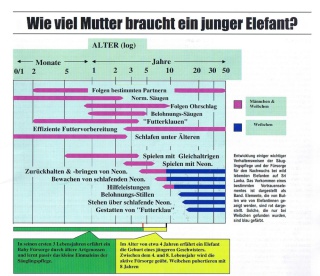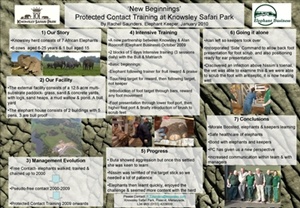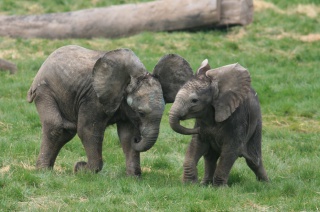Our commitment with regard to elephant husbandry in zoos
ELEFANTEN-SCHUTZ EUROPA e.V. promotes improvements of the minimum legal requirements generally applicable to elephant husbandry.
Our association provides information on how even one and a half decades after their stipulation in the "Säugetier-Gutachten" (expert opinion on mammals) in 1996, these unbearable provisions still sanction unbearable husbandry conditions of elephants in Germany and how a decision taken in 2000 degrades elephant husbandry in Germany to a kind of two-class-society.
Since, from a scientific point of view, these provisions require urgent revision, ELEFANTEN-SCHUTZ EUROPA e.V contributes constructive proposals to this revision process – at the request of the responsible ministry.
The management teams of some zoos, on the other hand, sometimes take positions which rather serve their own interests and not the elephants in their care. The European Elephant Group is of the opinion that official representatives of zoos who consolidate outdated attitudes regarding elephant husbandry should stand by their opinion in public as well as is shown by the following examples:
Our association promotes a type of elephant husbandry that is in accordance with the animals’ behaviour (in the sense of „species appropriate“), based on up-to-date scientific findings on the free-range behaviour of the biggest terrestrial mammal.
Please read the article by Dr Fred Kurt, probably the most important expert on wild Asian elephants, to learn about the grave consequences of premature separation of elephant calves from their mothers which is still practiced quite often, and about why it can be scientifically justified not to separate elephant mothers living in zoos from their daughters, for their whole lives if possible.
In our magazine, ELEFANTEN-SCHUTZ EUROPA e.V publishes independent and critical reports on both positive and negative examples of elephant husbandry in zoos. In doing so, we differentiate between various aspects of husbandry and refrain from blanket judgments.
These reports cover both different opinions as well as the concerned zoos’ reactions.
Our reports also include a documentation of the development of elephant husbandry, focusing mainly on Europe.
Elephant facilities: Based on confirmed information gained by way of observations (about 90 % of all elephant-keeping facilities in Europe have been visited personally by members of our association) or through contact with the zoos concerned, we report on new elephant facilities in Europe or significant modifications to existing ones. Examples of how both large and smaller countries are in a position to establish facilities which outperform conventional ones can be found on our web site
But even nowadays several facilities do not meet the requirements of elephants, those examples should be documentated as well
Management systems: The way the intelligent giants are handled in zoos is currently undergoing a process of transformation. ELEFANTEN-SCHUTZ EUROPA e.V. documents experience gained with the following three keeping systems: Direct contact, Protected contact and No training.
Stock management and breeding: The European Elephant Group’s comprehensive data collection on births and deaths as well as imports and transfers of elephants among zoos allows precise analyses of the development of stocks as well as conclusions as to the degree to which zoos are in a position to create a self-sustained stock of elephants of both species.
History of elephant husbandry in Zoos
|
You would like to know whether elephants can be kept in human care in a way that is appropriate to their behaviour (in the sense of “species appropriate”)? Here you can find facts about the real needs of the world’s biggest land mammals and about how these needs are currently met by European zoos and safari parks! |


























































